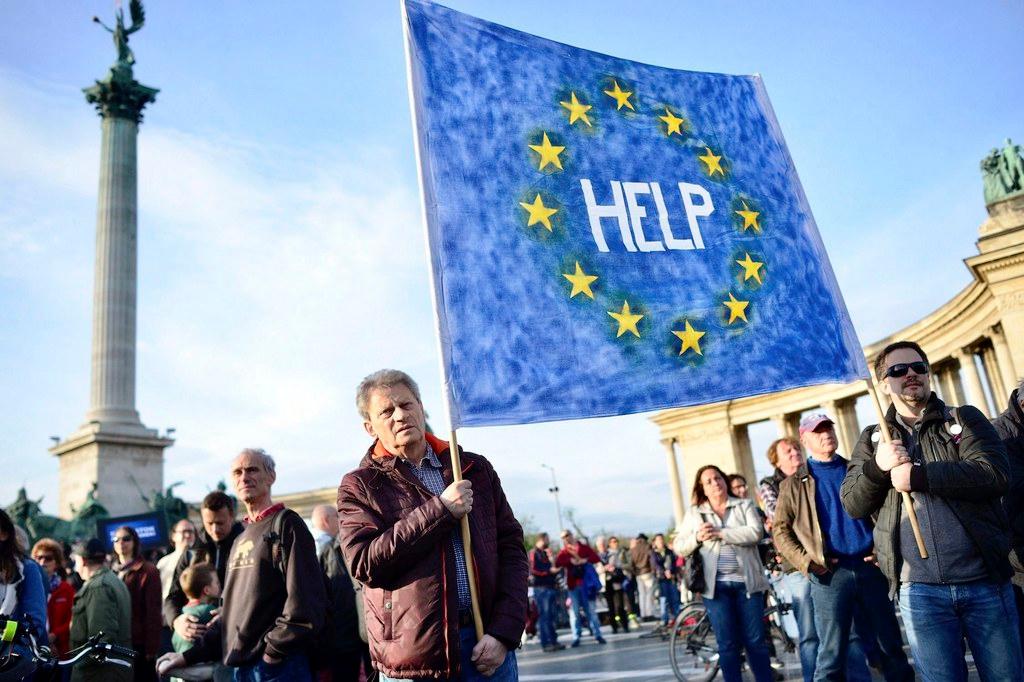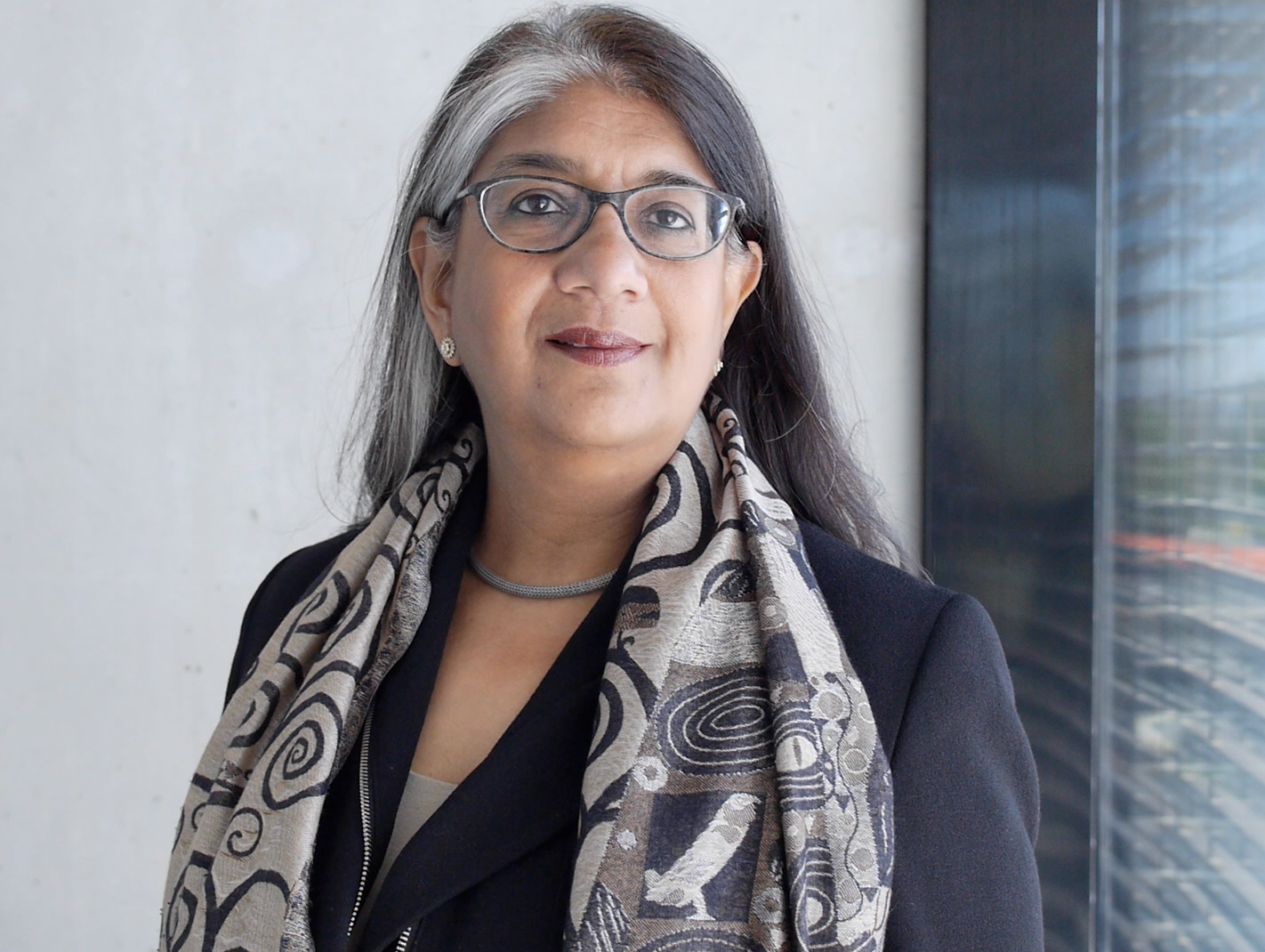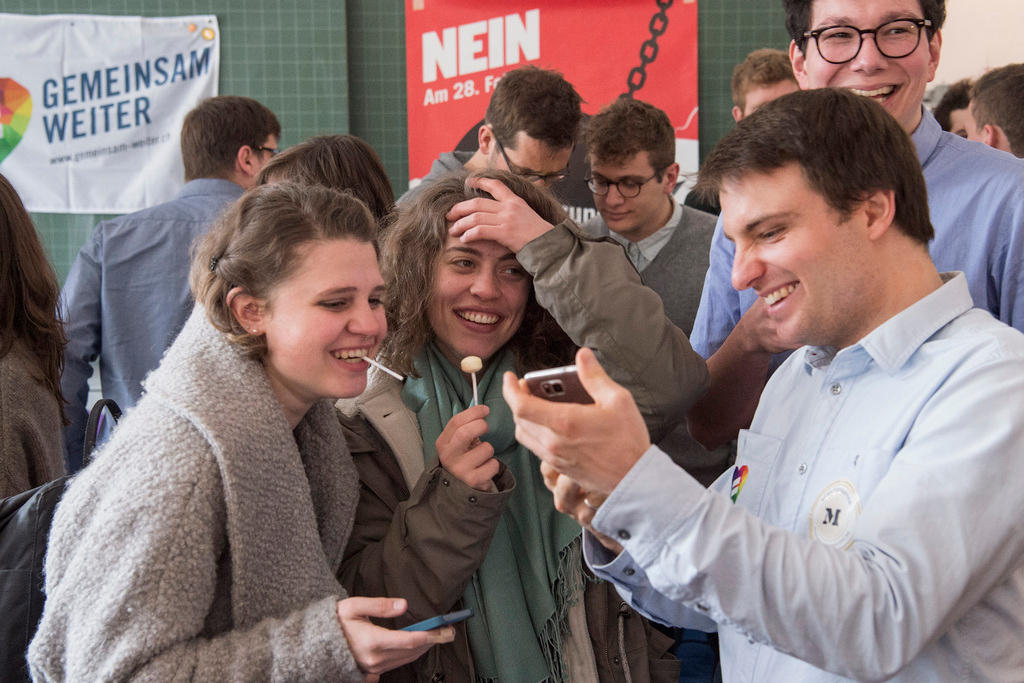Trust in democratic institutions is ‘in freefall’

The spread of democracy has turned into a crisis of democracy. Historical amnesia is partly to blame for a growing disenchantment, but this phenomenon, which varies widely, is poorly understood, says Shalini Randeria, a professor of anthropology and well-known democracy expert.
Randeria is the director of the Albert Hirschman Centre on DemocracyExternal link, a new research centre based at the Geneva Graduate Institute, which aims to deepen research into the current challenges to democracy around the world.
swissinfo.ch: During your centre’s inaugural lecture entitled ‘How Democracies Die’, US professor Stephen HolmesExternal link suggested that we are at a turning point and that the age of liberal democracy may be coming to an end? Do you agree?

Shalini Randeria: Democracy has gone global. Now the majority of the world’s population lives in formal democracies. But in many respects the spread of democracy has turned into a crisis of democracy. Trust in the political institutions of democracy—parties, elections, parliaments, media—is in free fall in many of the established democracies, while many of the newly democratized societies are experiencing a so-called “democratic recession”.
It is important to remember that liberal democracies are very recent, even in western Europe. They are without deep historical roots in most regions of the world, and thus still fragile, especially where their success is coupled with post-1945 economic prosperity and the welfare state.
The spread of majoritarian illiberal regimes [partial democratic regimes believing in decision by a majority and where citizens can vote but lack civil liberties] poses a serious challenge to liberal democratic values, principles and institutions as we knew them. If unpredictable violence undermines citizens’ ability to form durable expectations about the functioning of political institutions, the threat to academic freedom and freedom of expression, attacks against civil society institutions, and the intolerance of minorities all bode ill for the future of liberal democracy, which cannot be simply reduced to multi-party elections.
swissinfo.ch: Holmes explained the growing disenchantment with democracy in many societies by a combination of factors such as memory failure, modern communication allowing people to stay in their bubble, and political over-promising. What is your opinion?
S.R.: Holmes is certainly right to point to a historical amnesia among those of the younger generation with no direct experience and memories of totalitarian regimes. Yet the differences in the disenchantment with democracy in different countries are poorly understood. For instance, while voter turnouts in Europe and US are on the decline, there is a great enthusiasm to cast a ballot in India. Whereas the poor opt out of voting in western democracies, it is the rich who do not care about participating in elections in India.
But it is important to recall that though formal democracy has spread rapidly worldwide, its substance is being continuously eroded from within by populist leaders with authoritarian tendencies and from without by neo-liberal capitalism. People have the feeling that they can vote politicians in or out of power but they are powerless to change policies dictated by global markets. This also leads to growing resentment along with distrust in political elites and existing institutions.
swissinfo.ch: Can we draw any historical comparisons with the current wave of anti-establishment, anti-elite passion witnessed worldwide?
S.R.: Many scholars are comparing the current situation with the 1930s when there was growing polarization, deepening inequalities and distrust of established political parties. Today we are witness once again to the sharp tensions between national democracies and unbridled neo-liberal capitalism.
The principle of democratic majoritarianism collides with that of liberal constitutionalism [a form of government that upholds the principles of classical liberalism and the rule of law]. The result is the spread of illiberal democracies such as Turkey, Hungary, Poland or India, which defy the traditional vocabulary and conceptual frameworks for an understanding of democracy.
This article is part of #DearDemocracy, a platform on direct democracy issues from swissinfo.ch.
Today the differences between democratic and non-democratic regimes are not as sharp and distinctive as they once were as the current discussions on “illiberal democracies” in eastern Europe reminds us.
swissinfo.ch: Where is the best example of a functioning democracy, and why?
S.R.: In my view this is not a useful way to pose the question. There are many different models of democracy with respect to institutions, some with deeper historical roots than others. Their functioning depends on a variety of factors internal and external to a society but even within it, the experience that groups have of democracy varies with gender, generation, class, ethnic or religious belonging.
The focus on plurality of democratic experiences as opposed to “democratization” or “backsliding of democracy” allows us to pursue an array of novel questions. Why do citizens in democracies with free and fair elections try to bring about social and political change in the same manner through street protests as citizens of countries who lack the effective right to elect their leaders? Could it be that in many places elections have become collective celebration of popular powerlessness, so that the presence of competitive elections is not enough to empower citizens or fulfill their democratic aspirations? Is the separation of powers today out of fashion and what are the consequences of it being abandoned? Why do citizens increasingly use courts and other semi-judicial forums instead of elections to render governments accountable?
swissinfo.ch: What’s your view on the merits of Swiss-style democracy?
S.R.: The Swiss experience is a fascinating one with regard to direct democracy but its workings are, of course, also related to the small size of the country. Size matters but so does history. The Swiss model of direct democracy could hardly be transposed to a country the size of India or to China with a centuries long history of a powerful centralized state. The spread of democracy globally has also meant the transformation of western ideas and ideals of democracies, which need to be understood in their plurality.
Shalini Randeria: “Albert O. Hirschman is among the most distinguished intellectuals of the 20th century, whose wide-ranging oeuvre represents the kind of broad interdisciplinary research with policy implications that the centre will host.
An economist by training, Hirschman was a cosmopolitan scholar equally at home in Europe from where he was forced to flee to the US and then move to Latin America during the McCarthy era. He taught at Columbia University and finally made the Princeton Institute of Advanced Study his home.
Born in Berlin in 1915 he left Germany at 19, fought in Spain, studied in Italy and smuggled people out of occupied France. Thus the defence of democratic values and freedom were central to his life. Forced to face the dilemmas of leaving, dissenting, and accepting, Hirschman analysed the conditions under which people engage collectively for public issues, or disengage from these to pursue private goals and why societies oscillate between periods of intense engagement and indifference.”

In compliance with the JTI standards
More: SWI swissinfo.ch certified by the Journalism Trust Initiative




You can find an overview of ongoing debates with our journalists here. Please join us!
If you want to start a conversation about a topic raised in this article or want to report factual errors, email us at english@swissinfo.ch.